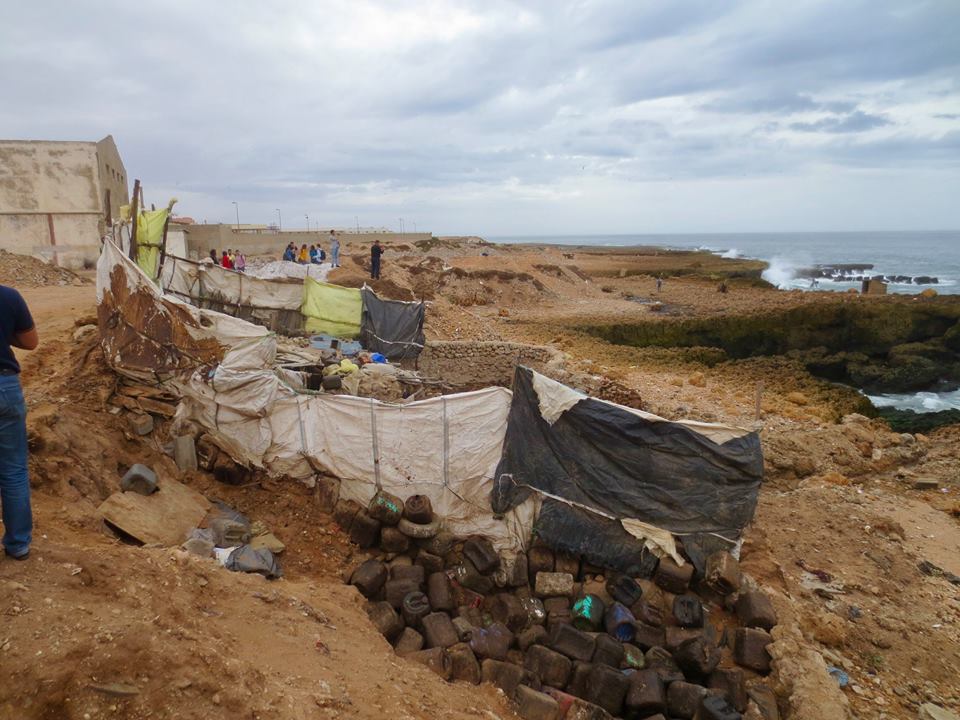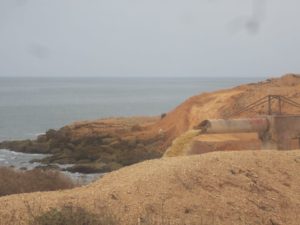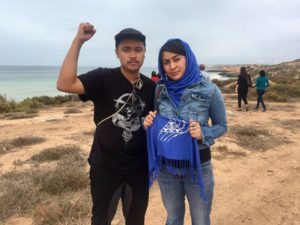I was selected as one of thirteen US youth delegates to join the COP 22 climate talks in Morocco this year and hopefully gain a deeper understanding of where the global discourse is on moving towards climate justice. Aware of the controversy that surrounds the COP gatherings -being that they are funded by corporations that perpetuate what have been widely accepted as the causes of climate change- and aware of my privilege as a US citizen, I was eager to join the local climate conversations happening amongst Moroccan grassroots organizers. Myself and three other delegates left early morning on a two hour drive to the coastal city of Safi where we attended the “Systems Change, Not Climate Change Conference”. Minutes after arriving, we left the hotel and embarked on a toxic tour through Safi’s industrial zone where we were given a brief history about the impacts that industrial corporations have had on the Moroccan peoples, water, fish and regional economy. What I saw and what I learned was all too familiar to the struggles back home.
Water pollution. Threatened fish populations. Displaced people. Destruction of traditional fishing communities and cultures. Destruction of the environment in the name of big agriculture. “Is this California?”, I thought to myself, No, this is happening to the peoples of Safi in Morocco, who are an entire ocean away, on the continent of Africa but are being impacted by the same forces that are causing my people and the environment the similar aches. My perspective of the water struggles issues in California have been largely informed by my work with the Winnemem Wintu and Ohlone indigenous peoples of California and their struggle to protect their sacred sites, their lifeways, their salmon and the water. The tour exposed me to an almost identical scenario of our struggle back home, except it is happening to a different people but it’s being caused by the same means. I highlight the parallels I identified below;
Tunnels; in California our fresh water is being threatened by the proposal of the twin tunnels to divert freshwater from the bay-delta estuary, one of the largest estuaries on the west coast, diversions for big Ag. Pictured here is a giant tunnel attached to the Phosphate factory spouting thousands of gallons per minute, open air, into the ocean and it’s full of toxic chemicals that are responsible for the declining fish populations. Do you see that tan color in the water?! That’s contaminated water from the factory that is producing phosphate for big Ag.
Destruction of culture: Safi used to have 120 fish factories that employed over 600 migrant woman, now only 24 factories are open. The people from Safi have traditionally relied on fishing for food, for work, and for cultural purposes. More than 55,000 people have lost their livelihoods as a result of this horror.
I looked down at the polluted water as I stood on the cliff and I saw my #run4salmon shawl. I thought about the Winnemem Wintu tribe and all the hearts that joined our prayer for the waters and the fish back home. I closed my eyes I drifted back into that prayerful journey and called in that strength. I heard the voice of my elders come into my heart whispering, “This is the same struggle and we are all in this together, all sides”. Our waters are under attack but we are standing, and we are standing together from all over the world. #stopthetunnels In California, #nonestle and #nolngOregon, #nodapl in #standingrock #waterislife #salmonwillrun #nodamcanhold#goodthingscoming #strongerthanthestruggle the real #cop22#SystemsChangeNotClimateChange!




